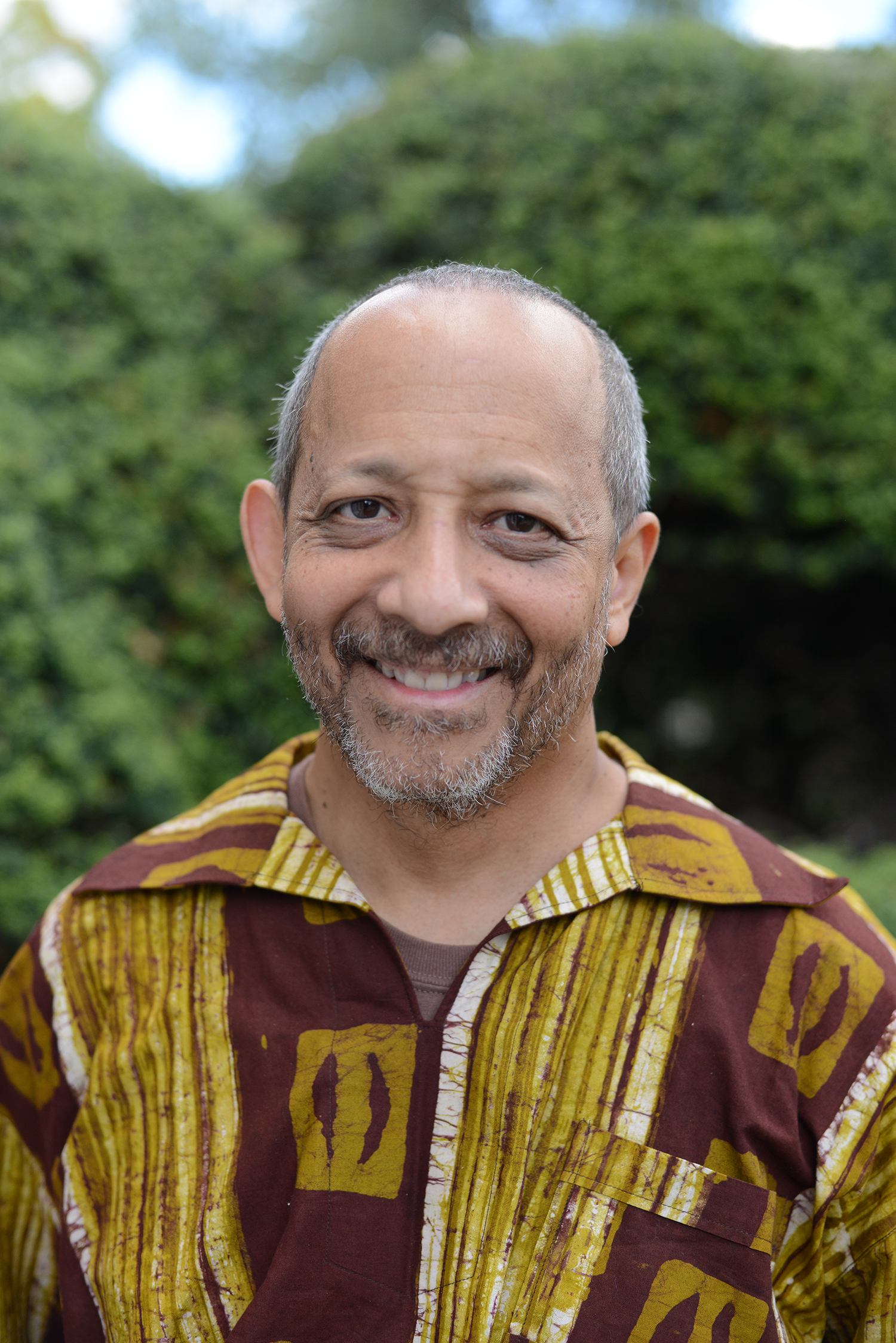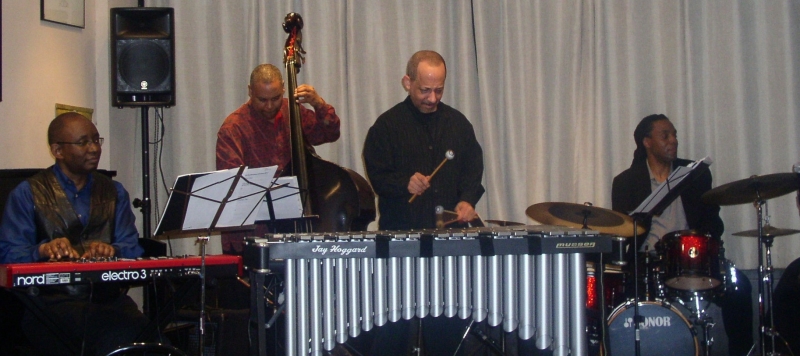Like many musicians caught in the midst of the major label collapse of the 21st Century, Jay Hoggard started his own label in 2003, JHVM Music, a move that has allowed him to record a wide variety of material, from a Christmas album to a duet with long-time associate James Weidman (piano, organ) to a tribute to his mentor Lionel Hampton.
Which bring us up to 2016. On April 29 and 30, the Center for the Arts at Wesleyan University presents its annual Jazz Weekend. Each year, the Music Department invites an artist for a weekend of music starting on Friday night with a concert, free and open to the public, featuring the University Jazz Orchestra, directed by Professor Hoggard, and the Jazz Ensembles, directed by Noah Baerman, Visiting Instructor, and Pheroan akLaff, Visiting Assistant Professor of Music. The concert takes place at 8 p.m. in Crowell Concert Hall, Wyllys Avenue, in Middletown
Saturday night, which happens to be International Jazz Day, belongs to the Jay Hoggard Harlem Hieroglyphs Ensemble. It's a quintet setting that finds the vibraphonist playing music from his new double-CD ("Harlem Hieroglyphs") with James Weidman, drummer Pheroan akLaff, bassist Belden Bullock, and saxophonist René McLean. The album (cover pictured left), funded in part by Wesleyan GISOS (Grant in Support of Scholarship), brings together the many influences on Hoggard's life, from the gospel music he heard in church (including the sacred music of Duke Ellington) to the sounds of African percussion to mentors like the afore-mentioned Lionel Hampton and Milt Jackson to the popular music on the radio and so much more.
Messrs. Weidman and Bullock both play on the album along with Yoron Israel (drums), Gary Bartz (alto and soprano saxophones), and, on 6 of the 18 tracks, Nat Adderley, Jr. (piano, organ). Mr. Bartz, who first came to critical notice in the mid-1960s playing in the Max Roach/Abbey Lincoln group and then moving on to Art Blakey's Jazz Messengers, is a welcome addition to this music. It's not just because he's such an inspired musician but it marks the first time the vibraphonist has recorded with a reed player since the early 90s. The first disk opens with "If I Were a Bell", the Frank Loesser classic from "Guys and Dolls", which Miles Davis first recorded in 1956. The group gives the tune a gentle swing, the clear tones of the vibes meshing well with the soft tones of the alto sax. Moving on to the blues of Hoggard's "Harlem Jazzbirds Swingin' and Swayin'"; the piece bounces sweetly atop Bullock's bass, Weidman's piano chords and Israel's masterly brush work. Gospel chords from the piano leads the group into "I Am Free", a funky original that also reflects the influence of South African pianist Abdullah Ibrahim. For this listener, the highlight on disk 1 is the emotionally strong performance of Bernard Ingher's "Everything Must Change", an oft-recorded ballad, most notably by Nina Simone and Quincy Jones with James Ingram. Here, it's the expressive alto saxophone that shares the lead with ringing tones of the vibraphone. Nothing is rushed, the musicians pouring their souls into the song creating a beautiful experience.
 |
| Wesleyan CFA |
Anyone who is acquainted with Jay Hoggard knows he's one of the most positive persons you'll ever meet. The music on "Harlem Hieroglyphs" is imbued with joy, hope, and wonder. His story is not only filled with his history but also his accomplishments and dreams. This is music that breathes, that swings with ease, soothes the soul, and makes one smile.
For more information about the album, go to www.jayhoggard.com. To get tickets to Saturday's 8 p.m. concert, go to www.wesleyan.edu/cfa or call 860-685-3355.
Here's "Everything Must Change" to whet your appetite and the show:








No comments:
Post a Comment